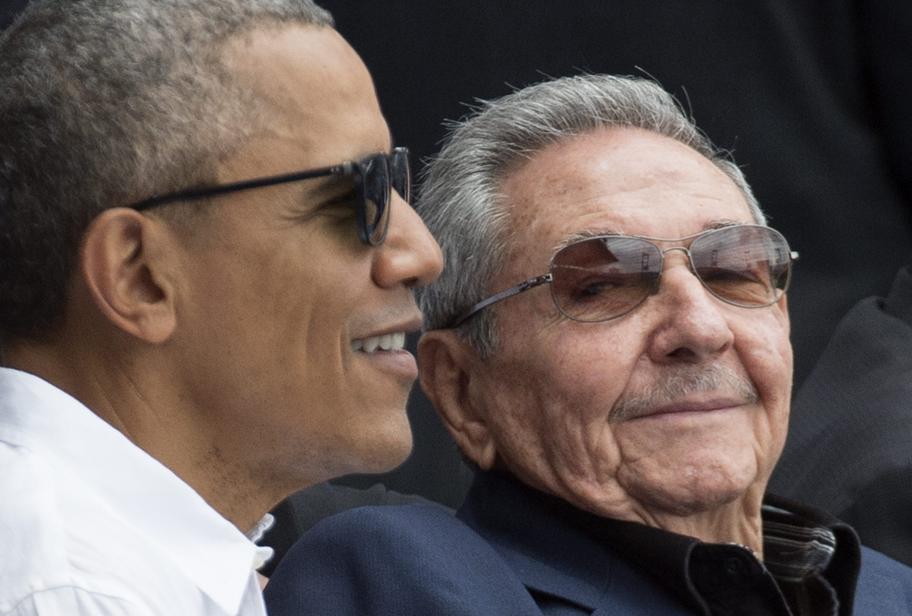
MEXICO CITY — For half a century, as Fidel Castro transformed Cuba into a communist state and sparred with the United States, his brother Raul worked in his shadow, the authoritarian leader’s disciplined, junior partner.
But by the time the elder Castro died Friday night, Raul Castro, who assumed presidential powers in 2006 before getting the official title in 2008, had transformed Cuba into a country that was unrecognizable in many ways — and yet remarkably the same.
Raul discarded some of the precepts that Fidel had considered sacred, chipping away at the communist scaffold his brother had built. And in a stunning embrace that caught the world off guard, he negotiated an end to the 50-year diplomatic standoff with the United States that Fidel had fiercely maintained.
It is now solidly Raul’s Cuba, an island where millennials talk to their cousins on Skype, where restaurant owners hustle for zucchini at privately run farms, and where Americans clog the streets of old Havana.
Over all this, he has a firm hold on power, secured by trusted military leaders in vital positions and a new economic course of his making in which private enterprise plays an essential — but unthreatening — role.
Still, Fidel died at a time of great uncertainty. Cuba’s regional benefactor, Venezuela, is collapsing economically. And many Cubans are trying to reach the United States while special immigration privileges are still in place.
And now, after multiple rounds of changes by President Obama to knit the two countries closer together, a wild card has emerged: the election of Donald Trump, who has threatened to undermine the détente between the two nations unless he can extract more concessions from the Castro government.
Cuban officials say they have weathered financial and political swings before, whether they were the US embargo, the collapse of the Soviet Union, or the economic troubles in Venezuela.
With Fidel gone, a lingering question may now be answered: Did the weight of his legacy hold Raul back, preventing him from substantially dismantling the cherished system his brother had constructed, or were the slow, halting steps toward change a reflection of Raul’s own desire to insert new life into the ailing Cuban economy — without weakening the structures of state power?
Roberto Veiga, the director of Cuba Posible, an organization based in Havana that promotes political dialogue, said that Fidel’s passing would “deeply affect people’’ on the island, but that it would not change the course of the country.
“It will have an emotional impact,’’ Veiga said. “It will have a political impact. But it won’t have any impact on how the country is governed.’’
“It’s a long time since Fidel was in the presidency,’’ he added. “Raul Castro has been leading the country for years. He has a team. There’s stability.’’
Enrique Lopez Oliva, a retired church historian in Cuba, expects change. While he did not rejoice in Castro’s death, he said, he found himself excited about the possibilities that it could bring for Cuba’s future.
“It’s the end of one era and the beginning of another,’’ he said. “The death itself, we were waiting for that to happen at any moment. But now it feels like a new phase is about to begin.’’
Some experts contend that Raul held back true economic reforms because his brother opposed them. Fidel, some believe, prevented the Communist Party from announcing major new endeavors at the party congress this year, Lopez said.
“Now Raul will feel more free,’’ he said. “The process of change will undoubtedly accelerate.’’
Lopez added that Cubans were eager for more economic changes because the increase in tourism seemed to have had the adverse effect of diverting food and other necessities to the tourism sector. Shortages are common, and frustrations are running high.
Lopez, who lives on a $12 monthly pension, said he recently had to sell two antique lamps in order to buy food.
“When I was in Miami, people asked me why I didn’t stay in Miami, and I said I wanted to see the end of the movie,’’ he said. “Now I am watching it.’’
Raul has suggested the changes in the country carried his brother’s approval. In a televised speech to announce the rapprochement with the United States in 2014, Raul said his openness to talks was “a position that was expressed to the United States government, both in public and in private, by our Comrade Fidel at different moments of our long struggle.’’
Raul, 85, has pledged to step down in 2018.
His vice president and former minister for higher education, Miguel Mario Diaz-Canel Bermudez, 56, is expected to fill the presidency. But in the opaque, tightly guarded circles of Cuban politics, it is impossible to know for sure.



